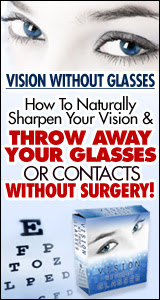Why Does Society Think I’m Some Kind of Freak for Abstaining From Alcohol?
![]() Andrew Beale, AlterNet
Andrew Beale, AlterNet
Waking Times
No one ever asks me why I don’t shoot heroin.
Everyone in my circle intuitively understands that heroin is extremely destructive. It’s highly addictive, disastrous for your health, there’s a huge risk of overdose — and the question of using it never comes up.
But in the nearly three years since I quit drinking, I’ve had to explain this decision more times than I can count. The funny thing about this is that alcohol is arguably more harmful than many illegal drugs, heroin included. Alcohol is one of the most addictive drugs ever discovered. It’s so addictive that heavy drinkers are at risk of death when they quit cold turkey, something that’s not true for the majority of other drugs. I find it truly strange that my decision not to use this substance is treated as strange, rather than the other way around.
Alcohol is also responsible for more deaths than any illegal drug, a fact you would never learn from studying drug-war propaganda. In fact, alcohol is responsible for more deaths than all illegal drugs combined. This is related to the fact that alcohol use is so widespread compared to illegal drugs (roughly 9% of Americans use illegal drugs compared to 66% that use alcohol). But surely some of the problem stems from the fact that being legal is often conflated with being safe.
Alcohol use is treated so differently from illegal drug use precisely because it has become so normalized in our society thanks to its status as a legal intoxicant. An open bar is considered almost a prerequisite for a wedding and asking someone out for a drink is one of the most common ways to begin a relationship.
The incredible amount of money spent on marketing campaigns, driven by the profit motive of international corporations, doesn’t help matters much. A large percentage, if not the majority, of alcohol advertisements are aimed at subtly normalizing unhealthy drinking behavior.
Take the famous Captain Morgan ad. This ad portrays a normal-looking young man who has chosen to drink at a bar rather than attend a wedding with his attractive blonde girlfriend. Dozens of bar patrons participate in his deception by acting out scenes from television programs, in order to help him trick his girlfriend into thinking he’s at home rather than at the bar. Their ability to think quickly and come up with a clever way to “help” their friend demonstrates that they’re all competent people capable of quick thinking, and the number of participants in the lie underscores the message that it’s normal to lie to your partner about your drinking habits. T
This type of alcohol ad is extremely common. Alcohol advertisements have along history of portraying alcohol as a tool to get sex, reinforcing the social perception that by lowering people’s inhibitions, alcohol makes it easier to get laid.
 There’s also celebrity sponsorship. Justin Timberlake was recently named “creative director” of Bud Light Platinum, a move no one seems to object to. But remember the controversy when an old picture of Michael Phelps smoking weed turned up?
There’s also celebrity sponsorship. Justin Timberlake was recently named “creative director” of Bud Light Platinum, a move no one seems to object to. But remember the controversy when an old picture of Michael Phelps smoking weed turned up?
All these advertising efforts are an integral part of the alcohol industry’s campaign to lure in new and often underage customers and keep their existing customers drinking heavily. An overview of studies on the impact of alcohol advertising published by Oxford University found that 12 of 13 studies showed “an impact of exposure [to alcohol advertisements] on subsequent alcohol use, including initiation of drinking and heavier drinking amongst existing drinkers.”
This is a good thing for the alcohol companies’ shareholders—and for the government. In 2006 alone, state and local governments made roughly $18 billionoff alcohol taxes. As for the industry, it’s raking in profits and using them to make sure it stays on top: in 2008, Anheuser-Busch (the company that makes Budweiser) took in $39.7 billion in revenue, and put that money to work,contributing over $1.5 million to political campaigns through Anheuser-Busch PAC. And in 2010, the California Beer and Beverage Distributors group financed the campaign against a ballot initiative to legalize marijuana, proving the industry has a financial incentive to keep illegal drug use down.
When you don’t drink, you start to notice how big of a problem alcohol is for so many people, despite the industry’s efforts to conceal this fact. After spending a couple New Year’s Eve parties sober, you start to ask yourself why anyone would want to do this. Somehow, when you’re sober, getting into a fistfight with your best friend and then puking in a bathtub just doesn’t look like that much fun.
And these aren’t even the worst effects of alcohol. Alcohol use is positively correlated with domestic violence, and alcohol is a factor in over half of all rapes. Alcohol abuse is the third leading cause of preventable death in the United States. And as AlterNet reported this week, the number of liquor stores in an area is one of the strongest predictors of the rate of violent crime in the area.
Still, there’s absolutely no social stigma related to alcohol consumption. It’s actually the opposite, as I’ve learned since I quit drinking. Not only do people find it strange that I don’t drink, some people refuse to believe it. I’ve had more than one argument that began with the other person insisting “No, I saw you drinking last week.”
Some people actually don’t understand what it means not to drink. I’ve heard everything from “But red wine isn’t really alcohol, right?” to “Yeah, I know you don’t drink, but you can just have one beer.”
The problem is that I can’t. I quit drinking when I was 21 years old, after an escalating series of alcohol-induced problems over several years, culminating in a bout of alcohol hallucinosis that ended with me being sedated in a jail cell after a fight with the guards. I finally realized that, for me, alcohol is an all-or-nothing proposition and that I would never be able to drink in moderation.
This is obviously not a story I want to share with every stranger 10 seconds after meeting them. But drinking is so ingrained in our culture that my decision not to drink almost always requires some kind of explanation. And abstinence from drinking is so unusual that it’s often impossible to wave the question away. People want details of why, exactly, you don’t drink.
This is a phenomenon that doesn’t occur with any other substance. People aren’t ever curious as to why someone doesn’t smoke cigarettes or why they don’t like coffee. Even vegans are subject to fewer questions than teetotalers.
Just how socially unacceptable not drinking is was driven home for me a couple weeks ago during a party at a friend’s house. I was sitting with a friend, a guy I’ve known a couple months, when, not realizing that I don’t drink, he started talking about his opinion of people who don’t drink. “My grandfather told me never to trust anyone that doesn’t drink,” he said. “And it’s true! He was right!”
 Actually, it’s drinking that makes people less trustworthy. Along with other parts of the brain, alcohol affects the frontal lobe and the amygdala, causing a lack of inhibitions and making you more prone to out-of-control behavior. Throughout my adult life, I’ve seen countless examples of alcohol causing horrible behavior, from violence to accidental injury to a shirking of responsibilities due to hangovers.
Actually, it’s drinking that makes people less trustworthy. Along with other parts of the brain, alcohol affects the frontal lobe and the amygdala, causing a lack of inhibitions and making you more prone to out-of-control behavior. Throughout my adult life, I’ve seen countless examples of alcohol causing horrible behavior, from violence to accidental injury to a shirking of responsibilities due to hangovers.
Another important thing to remember is that marijuana, still illegal under federal law, does not carry these same risks and is overall much safer than alcohol. Marijuana is much less addictive than alcohol and much less harmful, too. In the entire history of marijuana use, there has not been one recorded instance of death from marijuana overdose. Several studies have shown that marijuana useactually reduces aggressive behavior leading to violent crime.
Personally, I’ve never had any problems from smoking weed. When I smoke it, I don’t feel the need to smoke more until I pass out and It’s never made me unreasonably angry or caused me to do dangerous things.
But if I don’t feel like smoking, I never have to explain that choice (at least since high school, when a refusal to smoke automatically made you a cop). Alcohol has a special status in our culture as a social drug—more than a drug, it’s regarded as an activity. Going out to drink is a full-fledged pastime, one that’s often considered as harmless as an afternoon at the movies.
And for not partaking in this social activity (even though I still go to the same bars and parties as everyone else) I’m automatically branded as abnormal until and unless I can give a satisfactory explanation for declining to drink. When you think about it, this is really the reverse of the normal order. With any other drug as destructive as alcohol, the stigma comes from using it, not from abstinence.
I have no illusions that alcohol is suddenly going to disappear as a central force in the social life of Western cultures. But it’s time we paid a little more attention to our attitudes about alcohol and start to classify it as a drug rather than innocent entertainment.
About the Author
Andrew Beale is an independent journalist from New Mexico. He reports on politics, social-justice issues and global conflicts.
This article is offered under Creative Commons license. It’s okay to republish it anywhere as long as attribution bio is included and all links remain intact.
~~ Help Waking Times to raise the vibration by sharing this article with the buttons below…
